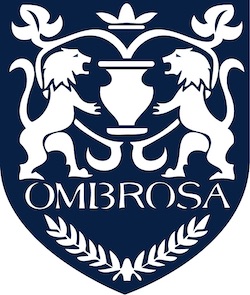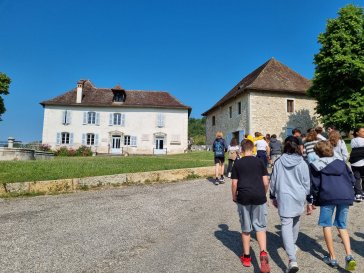As part of their programs in French and History/Geography, students of 3° listened to two testimonies.
On Monday, February 8: Mrs Helena Aufray told the students about her life in Moscow
On Friday, February 19: Mr Christian Desseaux told the story of his deportation to Buchenwald
On Friday, February 19: Mr Christian Desseaux came back to our 3° class to tell us more about WWII, the Resistance and his teenage-years during this period.
This moving testimony that lasted for 2 and a half hours was worth all the History lessons we’ve ever had.
- Desseaux joined the Resistance at 17.
- After a betrayal within his network, he is arrested by the Gestapo. Tortures, he will then be deported in a concentration camp in Buchenwald. There, he is chosen to work in the famour Dora tunnel where Germany was building the V1 and V2 rockets. He will experience horror, humiliation, hunger and despair. No one waas supposed to get out of Dora, and Mr Desseaux is one of the few who survived.
Now 84, Mr Desseaux goes to Lower and Upper Secondary schools in France to share his story and finishes on that note: “We hope that all grand children of grandpas from my generation can all be united by a strong friendship dedicated to peace and solidarity between all people“.
We thank Mr Christian Desseaux for his memories and his commitment and for the effort it must have been to describe what cannot be described.
Monday, February 8: Mrs Aufray Héléna came to our History class to discuss the Cold War.
Born in Moscow, Mrs Aufray shares her memories as a little girl in Elementary, and later in Lower and Upper Secondary. Rigorous education with theoretical lectures in the morning and sports or arts in the afternoon, but without forgetting the enthusiastic vacations in the Kolkhozes.
« I was happy with what I had. I was not wonderinf if people were better off in the West, since I was told that my country was the best of them all… But we had to be careful with our words sometimes. »
Mrs Aufray also told us about Mikhaïl Gorbatchev as leader of the USSR from 1985 and remembers the radical reforms that he starts to set up to change the negative opinion the world has of the USSR. She also remembers 1991, year that marks the dislocation of the USSR.
« These changes were extremely quick, it was hard for us to understand, we were all lost and afraid… Nowadays, Moscow is just like Paris, you can find anything there. When I was a teenager, there was no make-up or blue jeans in shops… In the evening, as we were watching the news on TV, we were always surprised to see that French people for instance were in the streets to demostrate although they did not seem to suffer ».




